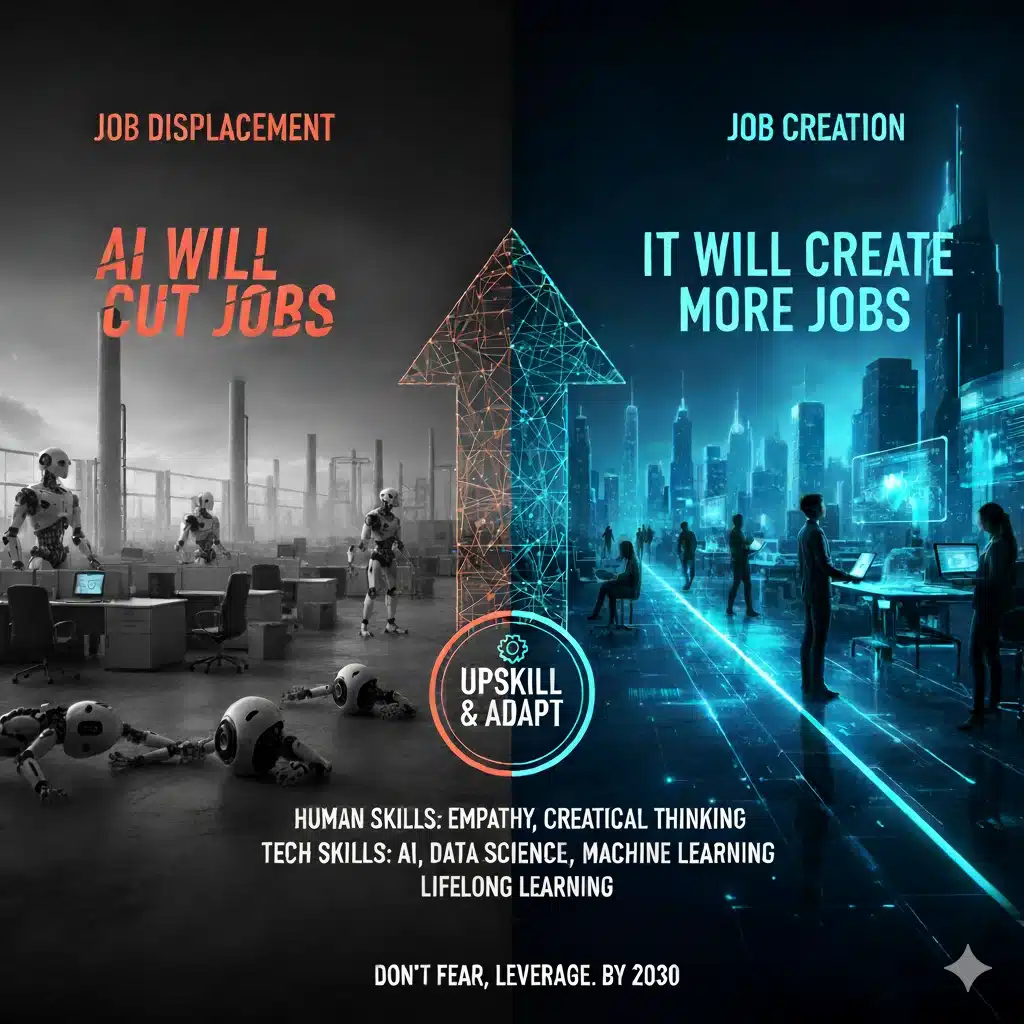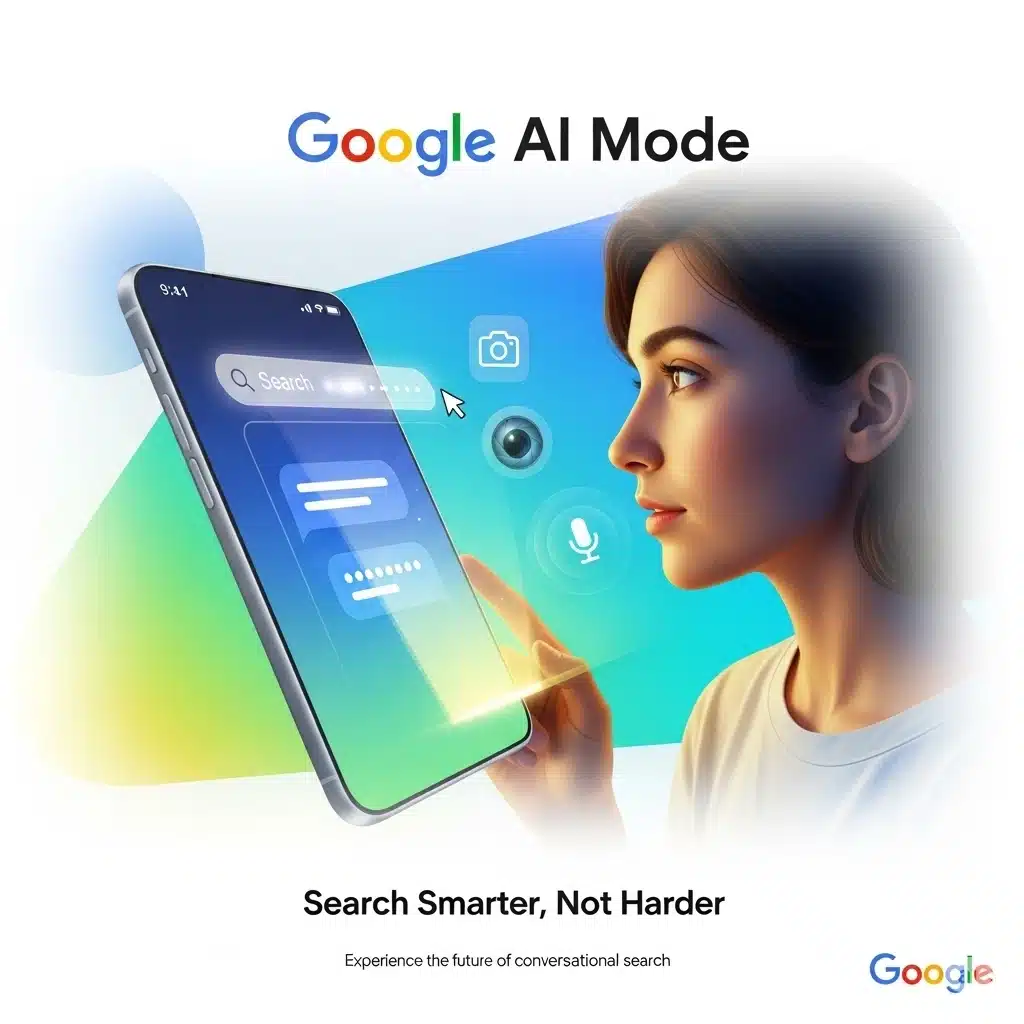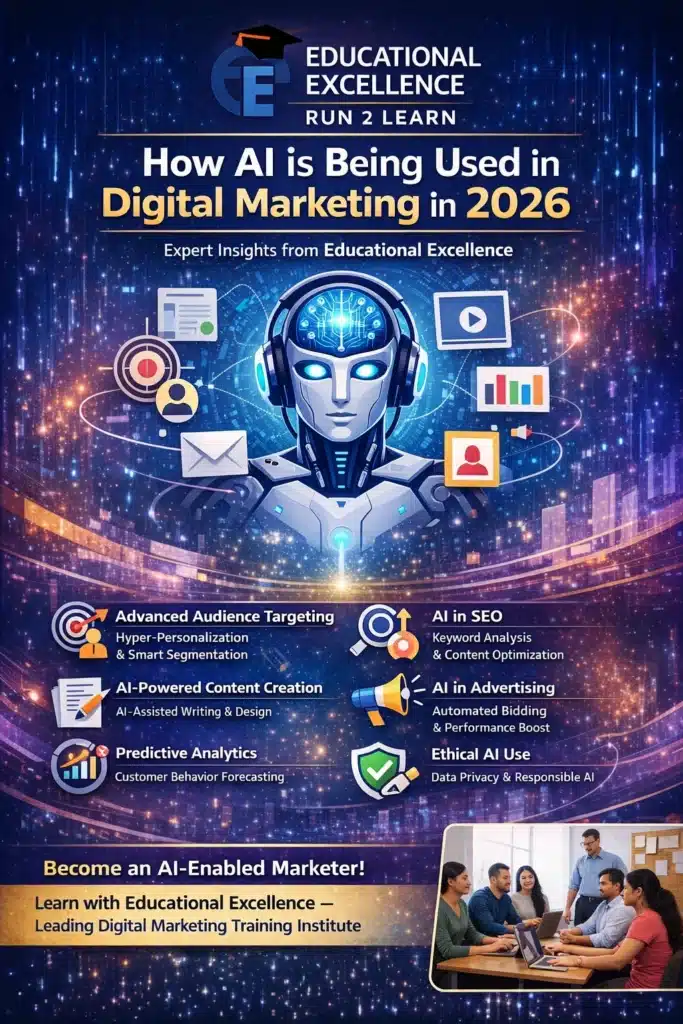By 2030, you will see a huge impact of AI on jobs and fundamentally reshape the market, causing job displacement in certain sectors while simultaneously creating new, in-demand roles. The key to navigating this shift isn’t to fear automation but to proactively upskill and adapt. By 2030, a significant portion of the workforce will need to embrace a mindset of lifelong learning to stay relevant.
1. The Impact of AI on Job Roles
The integration of artificial intelligence is not a question of if, but when. It’s a transformative force that will automate many routine, repetitive, and predictable tasks, affecting both blue-collar and white-collar occupations.
- Vulnerable Jobs: Roles that rely on routine data processing, administrative tasks, and predictable physical labor are most susceptible to automation. Examples include data entry clerks, telemarketers, cashiers, and certain customer service representatives. AI-powered chatbots and software can handle many of these functions more efficiently.
- Enhanced Jobs: Instead of being replaced, many jobs will be augmented by AI. This means workers will use AI tools to become more productive. For instance, a graphic designer might use AI to generate initial concepts, and a financial analyst might use it to process large datasets and identify trends faster. The focus will shift from the task itself to the human oversight and strategic application of the AI’s output.
- Job Creation: The rise of AI will also create entirely new professions that don’t exist today. These roles will be centered around the development, maintenance, and ethical governance of AI systems.
2. The Path to an AI-Proof Career
To thrive in the future, individuals must move beyond the fear of technological unemployment and invest in skills that are uniquely human. The following steps provide a roadmap for career resilience in an AI-driven economy.
- Step 1: Focus on Human-Centric Skills: AI excels at logic, data, and repetition, but it struggles with emotional intelligence, creativity, and critical thinking. These are the skills of the future. Cultivate:
- Emotional Intelligence: Empathy, negotiation, and leadership are crucial in roles like human resources, management, and healthcare.
- Creativity and Problem-Solving: Jobs that require innovation, strategic planning, and complex problem-solving—like those of artists, researchers, and entrepreneurs—will remain highly valuable.
- Interpersonal Communication: The ability to build relationships, persuade, and collaborate with others is a human skill that AI cannot replicate.
- Step 2: Invest in AI Skills and Digital Literacy: Don’t just work alongside AI; learn to work with it. Understanding how AI works and how to use it as a tool is a powerful career advantage.
- Primary Keywords: Artificial Intelligence, AI skills, machine learning, data science, robotics.
- LSI Keywords: AI adoption, workforce transformation, reskilling, future of work, automation, AI-driven economy, technological disruption.
- Step 3: Embrace a Mindset of Lifelong Learning: The traditional career path of learning a skill and using it for 40 years is a relic of the past. The pace of technological change demands continuous learning and adaptation.
- Continuous Education: Utilize online courses, certifications, and bootcamps to stay current with emerging technologies.
- Adaptability: Be open to career pivots and transitions. The ability to learn new things quickly will be more important than any single skill.
3. Jobs That Are Safe from AI (for now)
While AI’s influence will be pervasive, some professions are better insulated from full automation due to their reliance on uniquely human attributes.
- Healthcare Professionals: Doctors, nurses, and therapists require empathy, complex decision-making, and a personal touch that AI cannot provide. While AI can assist with diagnostics and data analysis, it won’t replace the human-to-human care aspect.
- Skilled Trades: Roles like plumbers, electricians, and carpenters rely on hands-on problem-solving and adaptability to unpredictable environments that are difficult for robots to navigate.
- Creative and Strategic Roles: Artists, writers, and managers rely on original thought, emotional context, and complex strategic judgment. While generative AI can assist with these tasks, it still lacks the core human qualities needed for true creativity and leadership.
In conclusion, the AI revolution is poised to be the next major industrial revolution, reshaping the global job market. While it will undoubtedly cause some job losses, it will create far more opportunities for those who are willing to upskill and adapt. The future of work isn’t about competing with AI; it’s about leveraging its power to enhance human potential. To adopt the skills join Educational Excellence’s AI course.




